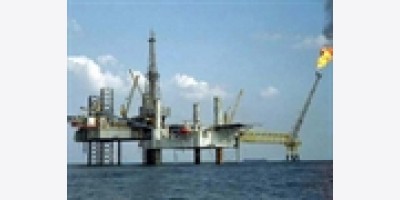By Bloomberg
Temperatures in Washington and New York are forecast to drop as much as 38 degrees today as a cold front that brought snow to Chicago yesterday sweeps eastward with gusty winds grounding flights.
The high temperature in Washington will reach 70 Fahrenheit (21 Celsius) before dropping tonight to 32, the freezing mark, the National Weather Service said. New York’s high may be 63, then fall to 32.
“After several days of very warm temperatures by mid-April standards, a much colder air mass is settling into the central and eastern U.S.,” wrote David Hamrick, a forecaster at the U.S. Weather Prediction Center in College Park, Maryland. “Pronounced temperature falls are expected as the front passes, along with gusty northwest winds.”
As of 4:50 p.m. New York time, 632 flights were canceled around the U.S., with New Jersey’s Newark Liberty International Airport, Philadelphia International and New York’s LaGuardia and John F. Kennedy International the hardest-hit, according to FlightAware, a Houston-based tracking service.
Freeze watches, meaning low temperatures may damage emerging plants, were posted from Louisiana to New Jersey, while flood watches and warnings reached from Pennsylvania into New England.
Winds will gust across the eastern U.S. as the front moves in, said Tom Kines, a meteorologist with AccuWeather Inc. in State College, Pennsylvania.
Temperature Records
“Out ahead of this front, it’s as warm as it can get at this time of year, and it’s the opposite of that on the other side -- it’s as cold as it can get,” Kines said by telephone. “There are going to be places that will have record highs out ahead of it and record lows behind it.”
As the front moves across the U.S., there’s a chance some areas west of the major cities on the East Coast may get snow today, Kines said. New York, Philadelphia and Washington won’t be affected, he said.
Temperatures will remain about 15 degrees below normal for this time of year in the wake of the front before moderating later this week, he said.
April temperature extremes may stoke natural gas demand in a month that usually is more stable, and that could keep stockpiles low, said Michael Schlacter, chief meteorologist at Weather 2000 Inc. in New York.
Gas Inventories
The first storage injection of this year was 4 billion cubic feet in the week ended April 4, bringing stockpiles to 826 billion cubic feet, EIA data show. A supply deficit to the five-year average was unchanged at a record 54.7 percent.
Last month was the coldest March since 2002 in the contiguous 48 states, with an average temperature of 40.5 degrees, 1 below the 20th century average, the National Climatic Data Center said today.
The high temperature reached 85 at Reagan National Airport in Washington two days ago, and it may drop to 51 tomorrow, according to the weather service. Readings such as those will cause people to turn on air conditioners and then seek heating, Schlacter said.
“We’re not going to have much of a spring here,” he said. “The injection was only 4 last week.”
Canada Snow
The storm may leave as much as 4 inches (10 centimeters) of snow in Toronto and across southern Ontario, according to Environment Canada. Montreal may get 1.5 inches of rain before temperatures drop, causing it to freeze, the agency said.
While snow falls across the north, the U.S. South may be swept by thunderstorms, Kines said.
There is a slight chance severe thunderstorms could affect as many as 17 million people from Virginia Beach, Virginia, to Jacksonville, Florida, according to the U.S. Storm Prediction Center in Norman, Oklahoma.
Yesterday, 1.4 inches of snow fell at Chicago’s O’Hare International Airport, bringing the 2013-2014 total to 82 inches, the third-snowiest season on records going back to 1884, the weather service said. The highest total was 89.7 inches in 1978-79.
As of 6 a.m., Detroit reached 94.8 inches, a new all-time high, the agency said. The previous record was set in 1880-81.
To contact the reporter on this story: Brian K. Sullivan in Boston at bsullivan10@bloomberg.net
To contact the editors responsible for this story: Dan Stets at dstets@bloomberg.net Charlotte Porter, Bill Banker























